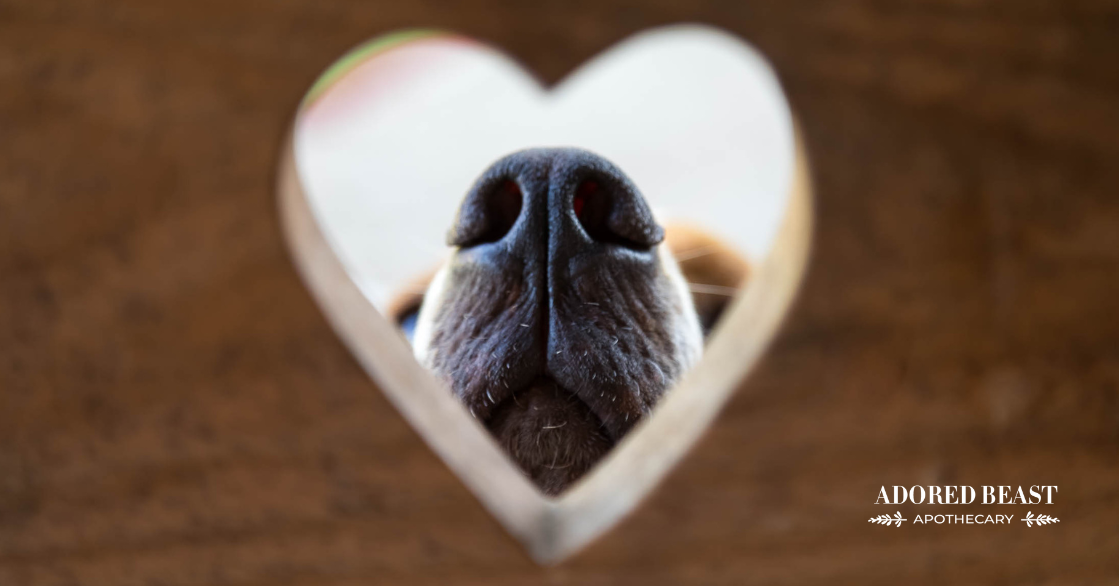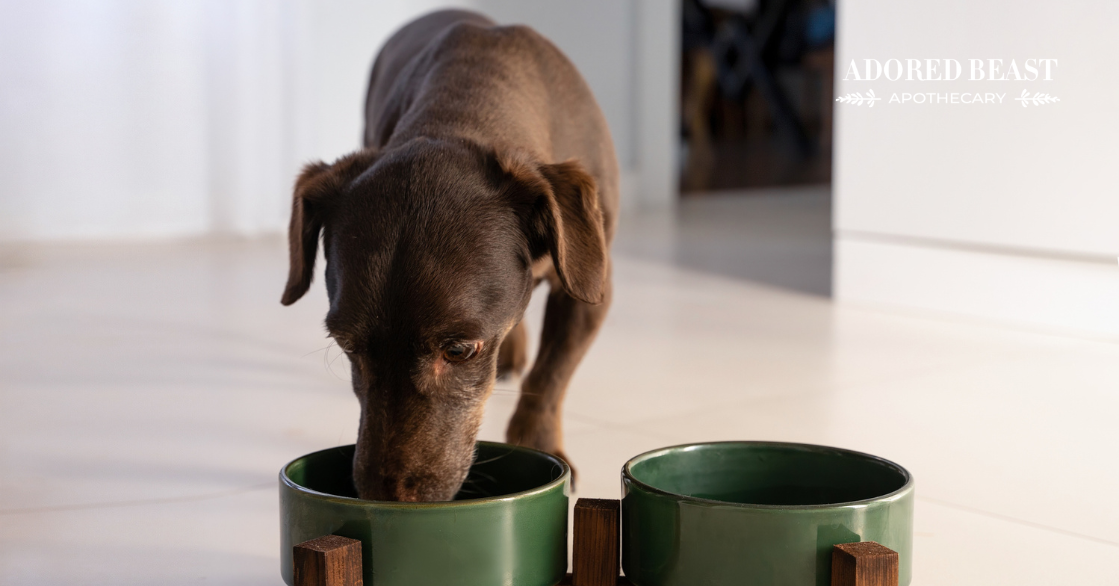Heart disease is a scary condition – and one many humans have dealt with, either with themselves, or a loved one.
And sometimes, that loved one is a dog or cat.
Thankfully, heart disease is uncommon in dogs. It affects only about 10 percent of all dogs. Congenital heart disease is the most common heart disease in dogs, with an overall rate of affected animals around 1 percent.
Heart disease is even less common in cats. The most common type of heart disease in cats is adult onset hypertrophic cardiomyopathy.
Still, even if uncommon, those numbers are more than 0 – and 0 is the only number we like to see in cases like this. So, this week (this whole month in fact) we really want to focus on the heart. These heart health tips for dogs and cats will hopefully help you keep your animal’s heart in tip-top shape!
What a Happy Heart Does
We all know the heart is a vital organ – but what exactly does it do?
Ok, most of us know that too – it pumps blood all around your body as it beats.
It also helps circulate hormones around, as well as other essential substances, it takes oxygen-poor blood and sends it to the lungs for oxygenation, transporting waste products from the body, and it maintains blood pressure.
It’s a big job, but somebody’s gotta do it.
But when the heart isn’t functioning as it should, you’ll start to notice symptoms that indicate something is off.
Symptoms of Heart Disease
Most heart disease in dogs is considered “acquired” – meaning your dog isn’t born with it. Instead, it develops over time as a result of every day wear and tear, injury or illness. Cats are similar – there are two common congenital heart diseases for cats (malformations of a valve or a septal defect in the wall that divides the right and left sides of the heart), but time and wear and tear can cause the others.
No matter what, heart disease is something you want to take seriously. If you notice any of the following symptoms, talk to your veterinarian right away:
- Dry cough after exercise
- Cough that worsens at night
- Shortness of breath
- Rapid weight loss
- Fatigue/lethargy
- Fainting spells
- Pale gums
- Swollen abdomen (pot belly)
- Poor appetite
- Uncomfortable when lying flat or sleeping sitting up by leaning again the back of a chair or couch (propping themselves up to sleep)
Heart Health Tips for Dogs and Cats
Use these heart health tips for dogs and cats to protect this vital organ.
1. Heart-Healthy Nutrition
What you feed your pet plays a big role in their heart health. You want a balanced diet with lots of heart-healthy elements. We always opt for fresh, whole food
Things you don’t want to forget:
- Organ meats, particularly the heart. Hearts whether raw or lightly cooked provide an array of nutritional benefits for dogs. The heart is a great source of protein, B-Vitamins, iron, and selenium
- Eggs – especially egg whites – contain some valuable nutrients that can boost the number of heart-healthy metabolites in the blood. If you’re concerned about the cholesterol, reduce the amount of egg yolk, and only feed a few a week.
- Green leafy veggies – for dogs particularly, dark green leafy vegetables like kale, spinach, and swiss chard give the heart a nice antioxidant boost.
- Berries are another great source of antioxidants for dogs (and cats too, if they’ll eat them). They’re loaded with vitamins and minerals too. Blueberries, raspberries, blackberries are all good.
Additionally:
- Avoid those highly refined “bad carbs” in many processed foods.
- Make sure that sodium is low or non-existent in your dog’s diet. Salt is not a friend to the heart, especially for our animals.
2. Keep Weight in Check
Obesity is the enemy of a healthy heart. If your pet is overweight, this puts extra pressure on the heart. That’s never a good thing.
These days, well over half of all dogs and cats are considered as obese. Working on getting you pet to a health weight is so very important.
The two major issues we see causing obesity are:
- A lack of exercise, which cause boredom, stress, or depression, which in turn can increase cortisol, cholesterol, and fat!
- Carbs! Many of our animals are not eating too much, but rather they’re being fed an inappropriate diet and are simply not moving enough.
Consider what you feed, and perhaps reduce caloric intake (in small increments). If you decrease food, we would recommend changing to a species-appropriate whole food diet and go for more walks, play more, and just get your animal active active.
Do not fast cats of any age, or puppies. And if you choose to work a fasting day into your dog’s schedule, make sure that you’re not overwhelming them with smells of cooking and food in your home.
3. Pay Attention to Those Teeth
You might not relate dental care to heart health, but there is actually a very strong connection between the two. Infections that start in the teeth and gums can travel through the blood and negatively affect organs like the heart.
Thankfully, you can keep dental health in check to reduce that risk. Be sure to brush those pearly whites and allow your pet to chew on raw meaty bones. Probiotics are also good. They help encourage good bacteria in the mouth. Feeding them is good, but taking some and rubbing it directly on the teeth and around the mouth is even better.
4. Exercise Every Day
All animals need exercise, no matter their age. Just like humans, exercise is key for heart health. Ensuring your pet gets adequate exercise including frequent cardiac exercise, helps keep your dog or cat healthy and happy.
For your pup, consider walking, running, playing, swimming, hiking. Play some frisbee or fetch in the backyard. Do some agility or flyable training. Just be sure to consider your dog’s ability level – you don’t want to push them. Watch for signs that your pup is tired.
For kitties, especially those who stay indoors, toys they’ll chase around the house or a cat tree with loads of play stations are both good to get the body moving. If your cat goes outside, encourage them to play and search out catnip (of course you can do this inside too).
5. Heart-Healthy Supplements
As far as heart health tips for dogs and cats go, don’t forget about the supplements!
- Omega 3s – Making sure that your animal is getting enough omega 3 fatty acids is a great way to support their heart health. Research shows that omega-3 fatty acids may reduce inflammation throughout the body, inflammation which can damage the blood vessels and lead to heart disease.
- Probiotics – The bacteria in your pet’s gut can influence overall health and wellness, so maintaining that good bacteria is essential important. An imbalance of bacteria in an animal’s gut can impact heart health, so you want to be sure you’re paying attention to the gut. Species-appropriate are a great option. And choose prebiotics that have functional antioxidant value.
- Antioxidants – To fight free radicals that can damage your pet’s cells, you want to be sure you’re including antioxidants. That means foods like the ones we mentioned about (leafy greens and berries), but also supplements that contain much higher concentrations. Phytoplankton is a great choice, especially because, as a super bioavailable whole food, it contains so many different vitamins and minerals. Chaga mushrooms are also packed with antioxidants.
- Amino Acids – There are essential and non essential amino acids. Research shows that the essential amino acids found in animal protein can be hard on the heart, while non-essential amino acids, richer in plant protein, are beneficial for the heart. So you want to make sure you’re balancing those out and getting those non-essential acids. Both essential and non-essential amino acids are plentiful in phytoplankton, which helps to achieve that balance, but interestingly enough, the essential ones in phytoplankton are actually much more beneficial than those in meat.
Heart-Friendly Herbs & Homeopathy
Herbal medicine has much to offer if heart disease is present. When used correctly, many herbal remedies offer mild, supportive care without adverse side effects.
Heart-friendly herbs include:
- Hawthorn (Crataegus oxyacanthoides)
- Motherwort (Leonurus cardiaca) – caution: can affect the thyroid in hypothyroid if used long-term
- Cayenne (Capsicum spp.) – caution: needs care as one only needs a pinch and it should be part of a formula
- Yarrow (Achillea millefolium)
- Rosemary (Rosmarinus officinalis)
- Ginkgo (Ginkgo biloba)
Herbs are complex, so we recommend working with a canine or feline herbalist to formulate a specific herbal regimen for your pet. That way you can be sure to choose the right ones, in the right amounts, and for the right period of time.
Homeopathy can also be supportive if a heart issue is present. There are so many that are miracle workers with heart disease, and Julie used many combinations at her veterinary hospital with great success. Work with your veterinary homeopath to find the right ones for your pet’s condition.
Your animal’s heart beats for you, just as yours beats for them. Keep it healthy as best you can by providing the heart (and the whole body) with the support it needs. Incorporate these heart health tips for dogs and cats into your daily routine to do just that!












